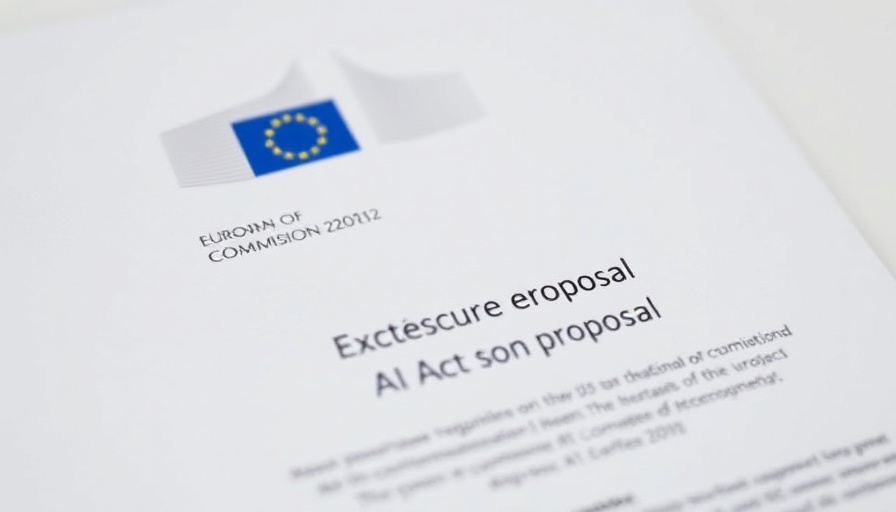
The New Framework for Artificial Intelligence in Europe
As the landscape of technology evolves, the European Union is stepping forward with ground-breaking legislation known as the AI Act, marking the first comprehensive legal framework governing artificial intelligence (AI). Aiming to balance innovation with safety and fundamental rights, this regulation seeks to harness the immense potential of AI while curbing its associated risks.
Why Europe is Leading the Charge on AI Regulation
The EU’s commitment to ethical AI practices is underscored by the AI Act, introduced as part of a broader initiative to safeguard human rights and societal values. The regulation establishes clear guidelines based on the risks that various AI applications pose, creating a structured approach that promotes responsible innovation.
To realize its ambitious goals, this legislation will oversee AI deployment across numerous sectors—from healthcare, where AI can improve diagnostic accuracy, to finance, where it can streamline operations and assess risks.
Risk Categories and Compliance: What You Need to Know
The AI Act categorizes AI systems into four distinct risk levels: unacceptable, high, limited, and minimal. For instance, AI applications in surveillance or social scoring are deemed unacceptable, while those used in healthcare or hiring processes may be classified as high risk. Compliance with stringent regulations is mandatory for high-risk AI systems, requiring strict documentation, transparency measures, and continuous risk assessments to foster trust in these technologies.
Future of AI: Opportunities and Challenges
While the AI Act positions Europe as a global leader in AI governance, it also presents challenges for businesses. Organizations must adapt rapidly to these regulatory frameworks or risk facing hefty fines for noncompliance, potentially nudging them toward innovative solutions while ensuring ethical practices remain at the forefront.
As technological advancements continue, businesses and individuals alike stand to benefit from the balanced approach the EU is establishing. Innovation birthed from this framework can lead to improved services and increased public trust in technology—a win-win for both developers and consumers.
Call to Action: Embrace Ethical AI Development
As the AI Act takes effect, organizations and developers are encouraged to align their practices with these regulations, enhancing transparency and accountability within their AI systems. By prioritizing ethical AI development, businesses can not only avoid penalties but also gain a competitive advantage in a rapidly changing market.
 Add Row
Add Row  Add
Add 




Write A Comment